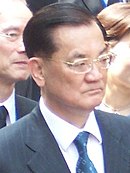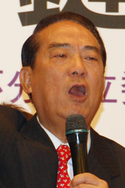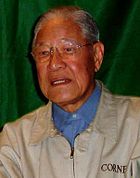Republic of China legislative election, 2001
|
|
|||||||||||||||||||||||||||||||||||||||||||||||||||||||||||||||||||||||
|---|---|---|---|---|---|---|---|---|---|---|---|---|---|---|---|---|---|---|---|---|---|---|---|---|---|---|---|---|---|---|---|---|---|---|---|---|---|---|---|---|---|---|---|---|---|---|---|---|---|---|---|---|---|---|---|---|---|---|---|---|---|---|---|---|---|---|---|---|---|---|---|
|
|||||||||||||||||||||||||||||||||||||||||||||||||||||||||||||||||||||||
|
All 225 seats to the Legislative Yuan 113 seats are needed for a majority |
|||||||||||||||||||||||||||||||||||||||||||||||||||||||||||||||||||||||
|
|||||||||||||||||||||||||||||||||||||||||||||||||||||||||||||||||||||||

Election results
|
|||||||||||||||||||||||||||||||||||||||||||||||||||||||||||||||||||||||
|
|||||||||||||||||||||||||||||||||||||||||||||||||||||||||||||||||||||||
The Election for the 5th Legislative Yuan (Chinese: 五屆立法委員選舉) of Taiwan was held on 1 December 2001. All 225 seats of the Legislative Yuan were up for election: 168 elected by popular vote, 41 elected on the basis of the proportion of nationwide votes received by participating political parties, eight elected from overseas Chinese constituencies on the basis of the proportion of nationwide votes received by participating political parties, eight elected by popular vote among the Taiwanese aboriginal populations. Members served three year terms from February 1, 2002 to February 1, 2005.
The first national election to be held after Chen Shui-bian's victory in the 2000 presidential election, the election resulted for the first time in the Kuomintang (KMT) losing its majority and President Chen's Democratic Progressive Party to emerging as the largest party in the legislature. However, the Pan-Blue Coalition developed between the Kuomintang, the People First Party and the New Party, enabled the Chinese reunificationist and conservative opposition to muster a slim majority over the pro-Taiwan independence Pan-Green Coalition formed between the Democratic Progressive Party and the Taiwan Solidarity Union. This resulted in much of President Chen's agenda being derailed or deadlocked for the following three years.
...
Wikipedia




